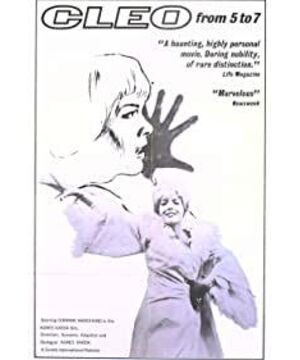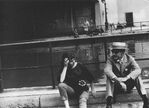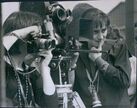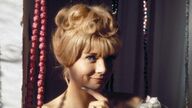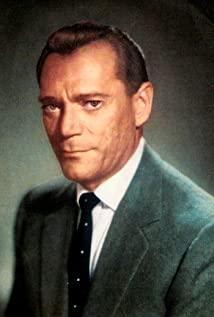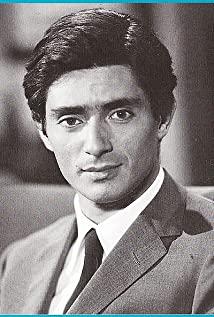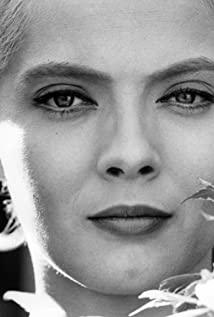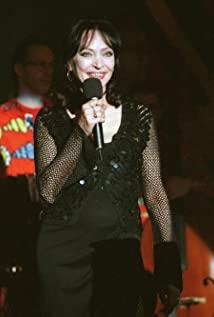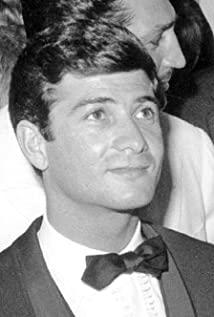"Five to Seven O'clock" begins with a tarot card divination scene. The camera is a close-up of fingers and cards. This is also the only color scene in the entire film. Cleo's superstition of tarot cards is not fundamentally different from that of young girls who are superstitious about constellations. Possibly suffering from a terminal illness, and having been "diagnosed" on the tarot card he believed in, Cleo's inner fear and anxiety naturally emerged, so emotions became the driving force of the movie, guiding the direction of the story.
So in a nutshell, this is an emotional movie, telling an hour and a half story in an hour and a half, not the two hours in the title, intercepting a time and space in Cleo's life, the story With the flow of emotions, sometimes joyful, sometimes sad, the young girl's mind is vividly displayed in the process.
This way of handling is very new wave, very casual, completely different from the studio's set, but it is undeniable that emotions are a very tough thread, and every emotional swing of Cleo makes people feel It feels real and kind.
"wait"
In the movie, Cleo has been in a state of waiting for the diagnosis. From five to seven o'clock, it is the waiting process before the fate is revealed.
Waiting is the norm. We wait all the time, waiting for good news, waiting for bad news, waiting to appear, waiting to disappear, waiting for others, waiting for ourselves, but what Cleo is waiting for is a more urgent and more important result, about The fate of life and death.
From real life experience, waiting is rarely an enjoyable process. Cleo's psychological state has been in a state of out of control almost from the beginning, and fear and anxiety are biting his heart. This is a total loss of security, and anyone who is in this situation will feel resentful, will feel helpless, and will inevitably think of the worst outcome - will I die?
Cleo tried to end the waiting process early by divination of the tarot cards. It's hard to say that she really believes that divination can accurately predict the impermanence of fate. This is more like a "superstition" of empathic nature, so that the misfortunes she has encountered have a place to be blamed, or through some kind of willingness to believe. form to seek psychological comfort.
Unfortunately, the result is a poor one, and we see Cleo spiral out of control, crying and weeping.
"Life"
In this film, the concept of life actually corresponds to the diversity of emotions. Waiting for Cleo's negative emotions to explode, but life brings in other emotions to temper it.
When he walked out of the fortune-telling shop and came to the street, Cleo broke away from his painful emotions in an instant and became elegant and generous; when he entered the shopping store, his original crying mood was also restrained; in the car, She felt embarrassed when she heard her song on the radio; at the coffee shop, she was dissatisfied with the lack of enthusiastic response to her singing from customers...
Emotions are built on life. The variability and complexity of life adjusts the changes of emotions all the time. From good to bad, from bad to good, emotions fluctuate all the time, rather than on a single track. For most of the pages, this process of fluctuation is repeated.
"beauty"
After the divination, Cleo went downstairs and looked in the mirror and said something very interesting: "As long as the beauty is still there, I am still alive!" Typical female words, especially young and beautiful women.
Indeed, Cleo is like a jewel on the screen, radiating brilliance. When she was trying on hats, the restless mood was gone, replaced by the pleasure of beauty, fashionable and trendy hats were rotating on top of her head, different styles, the only one who was the same was the person wearing the hat The beauty shown.
If the disease determines the life and death of Cleo's body, then beauty, to a certain extent, determines her spiritual life and death. There are several moments in the film where Cleo swept away his unease in order to remain beautiful, sometimes in order to remain beautiful, and sometimes when he was completely immersed in the joy of beauty.
In the second half of the film, Klaus encounters an officer, and the two pass through until the end of the film, a full-on street romance. What was the officer attracted to? Or Cleo's beauty.
"Five to Seven O'clock" has always been considered a feminist film. During the viewing process, because of cultural barriers and barriers of appreciation, I always stayed on Cleo's emotional changes and turned around. Come to think about it carefully, the clues of feminism are still in the state of probing the brain. If we have to sum up, if we combine the three words of waiting, life and beauty, only Cleo wanders the streets and sings until weeping. flash.
Feminism, as I understand it, is the most real and free state of women.
View more about Cléo from 5 to 7 reviews


